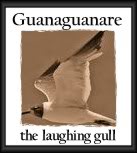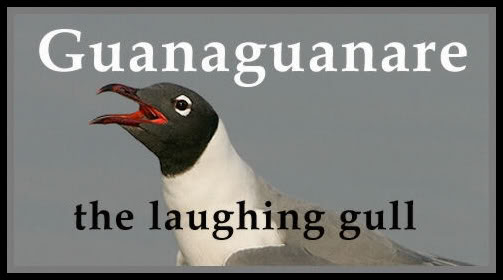Uploaded by ForeverMoreTatiana
MASTERS OF WAR
Composed by Bob Dylan (1963)
Performed by Tatiana Moroz
Come you masters of war, you the builder of guns
You that build the death planes, you that build all the bombs
You that hide behind walls, you that hide behind desks
I just want you to know I can see through your masks.
You that never done nothing but build to destroy
You play with my world like it's your little toy
You put a gun in his hand and you hide from his eyes
And you turn and run farther when the fast bullets fly.
Like Judas of old, you lie and deceive
A world war can be won, you want me to believe
But I see through your eyes and I see through your brain
Like I see through the water that runs down my drain.
You fasten all the triggers for the others to fire
Then you sit back and watch when the death count gets higher
You hide in your mansion as young people's blood
Flows out of their bodies and is buried in the mud.
You've thrown the worst fear that can ever be hurled
Fear to bring children into the world
For threatening my baby, unborn and unnamed
You ain't worth the blood that runs in your veins.
How much do I know to talk out of turn
You might say that I'm young, you might say I'm unlearned
But there's one thing I know, though I'm younger than you
That even Jesus would never forgive what you do.
Let me ask you one question, "Is your money that good?"
"Will it buy you forgiveness? Do you think that it could?"
And I think you will find when your death takes its toll
All the money you made will never buy back your soul.
And I hope that you die and your death will come soon
I will follow your casket on a pale afternoon
And I'll watch while you're lowered down into your deathbed
And I'll stand over your grave 'til I'm sure that you're dead.
Source: The lyrics posted on this blog are often transcribed directly from performances. Although it is my intention to faithfully transcribe I do not get all the words and I have a knack for hearing the wrong thing. Please feel free to correct me or to fill in the words that I miss by dropping me a message via e-mail. I'd be forever grateful. Thanks in advance! ..............................................................................................................................

A Note From The Gull
Thank you, Bob Dylan...and the way things are going, this song is going to be relevant until this world ends or we end it. This song expresses the anguish that is sown in people's souls when governments that are allowed too much power by their citizens and by the rest of the world, are bent on bringing death and destruction to those who displease them.
Why this rush to attack Syria? With the knowledge of all that has gone before, why am I even asking this question? Why not wait for the UN Weapons Inspectors to do their investigations and present their findings? Like many people with imperfect information, at this point I cannot point an accusing finger with any confidence. What makes you so certain? Rebels or Syrian government? Unlike some, however, I am not afraid of what the inspectors could find.
Why this rush to attack Syria? With the knowledge of all that has gone before, why am I even asking this question? Why not wait for the UN Weapons Inspectors to do their investigations and present their findings? Like many people with imperfect information, at this point I cannot point an accusing finger with any confidence. What makes you so certain? Rebels or Syrian government? Unlike some, however, I am not afraid of what the inspectors could find.
Reports: U.S.-led Rebels Sent into Syria Before Chemical Attack.
By Alex Newman | New American | Monday, 26 August 2013 11:30
Then see this report by the US government "Government Assessment of the Syrian Government’s Use of Chemical Weapons on August 21, 2013", which begins:
"The United States Government assesses with high confidence that the Syrian government carried out a chemical weapons attack in the Damascus suburbs on August 21, 2013. We further assess that the regime used a nerve agent in the attack. These all-source assessments are based on human, signals, and geospatial intelligence as well as a significant body of open source reporting. Our classified assessments have been shared with the U.S. Congress and key international partners. To protect sources and methods, we cannot publicly release all available intelligence – but what follows is an unclassified summary of the U.S. Intelligence Community’s analysis of what took place."
..."The body of information used to make this assessment includes intelligence pertaining to the regime’s preparations for this attack and its means of delivery, multiple streams of intelligence about the attack itself and its effect, our post-attack observations, and the differences between the capabilities of the regime and the opposition."
..."We have intelligence that leads us to assess that Syrian chemical weapons personnel – including personnel assessed to be associated with the SSRC – were preparing chemical munitions prior to the attack. In the three days prior to the attack, we collected streams of human, signals and geospatial intelligence that reveal regime activities that we assess were associated with preparations for a chemical weapons attack.
"Syrian chemical weapons personnel were operating in the Damascus suburb of ‘Adra from Sunday, August 18 until early in the morning on Wednesday, August 21 near an area that the regime uses to mix chemical weapons, including sarin. On August 21, a Syrian regime element prepared for a chemical weapons attack in the Damascus area, including through the utilization of gas masks. Our intelligence sources in the Damascus area did not detect any indications in the days prior to the attack that opposition affiliates were planning to use chemical weapons." SOURCE
So, what they are alleging is that using their spying...pardon me, their intelligence gathering capability, they knew about the plans to carry out the chemical weapons attack three days in advance? AND????.....What did they do to prevent it? Why didn't they threaten the Syrian government at that point? Why didn't they threaten that government, tell them that their plot had been uncovered and blow the whistle so the whole world would be on alert? Why didn't they warn the Syrian people? Why did they just sit back and wait so that complicity is the only word now to describe their inaction when all the citizens and especially the children that they are crying over now needed them to exercise their conveniently absent responsibility to protect? Their only excuse now will be that there was a long delay in making sense of the "intelligence" and even that excuse is hard to accept considering that especially at this time, they must take information gathering and analysis in this part of the world very seriously.
"Patria est communis omnium parens" - Our native land is the common parent of us all. Keep it beautiful, make it even more so.
Blessed is all of creation
Blessed be my beautiful people
Blessed be the day of our awakening
Blessed is my country
Blessed are her patient hills.
Mweh ka allay!
Guanaguanare












